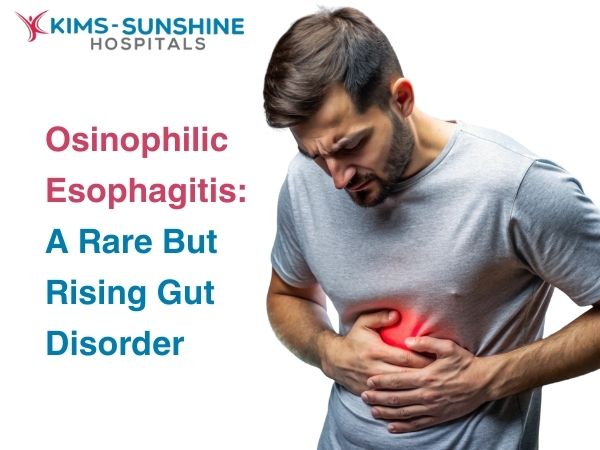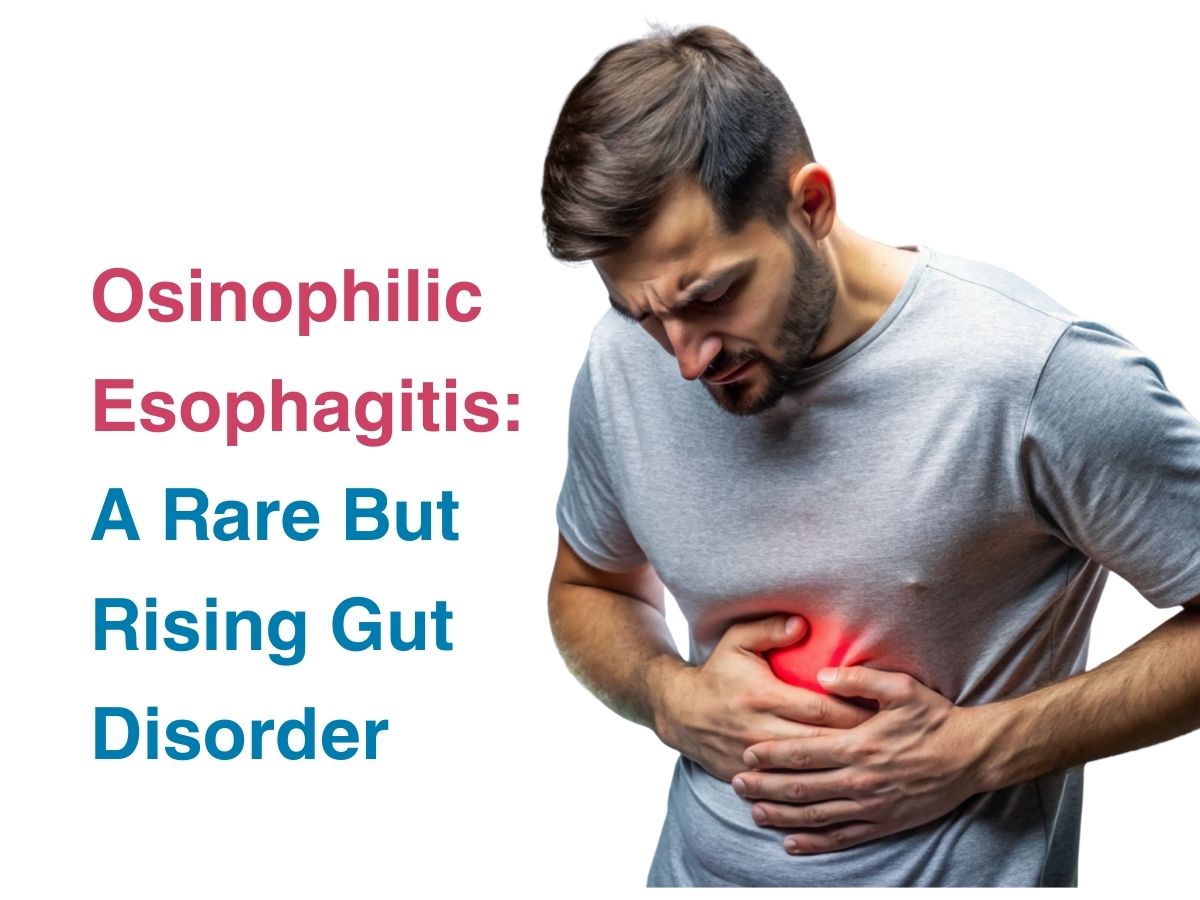
Eosinophilic Esophagitis: A Rare But Rising Gut Disorder

Eosinophilic esophagitis is an autoimmune condition that affects millions of individuals all over the world and its occurrence has steadily been increasing over the last decade or so. Also called EoE, it is a condition where the eosophagus or the tube that carries food down to your stomach gets inflamed or attacked by your own immune system. The esophageal tissue is thought to be a foreign entity, which makes the eosinophils attack the food pipe and form scar tissue. When this happens, you can no longer swallow water or food with ease, and it will always feel like there is something stuck in your throat. This uncomfortable sensation can be hard to deal with and if not diagnosed and treated, can cause other complications in the future.
Causes of Eosinophilic Esophagitis
It is an autoimmune disease and food allergies or triggers are thought to cause this reaction. It may be due to exposure to some environmental substance too. Most common allergens that have been studied include soy, nuts, shellfish, egg and dairy products. For many people, EoE may be present along with GERD, making diagnosis a little more tricker than usual. You are also at risk of suffering from other autoimmune conditions that may affect the skin or the gut- as your immune system is working in overdrive.
Symptoms to Know About
Anyone can suffer from this condition. So, if it is a kid or baby, they may refuse to eat and not be able to gain weight or hit their developmental milestones. For older folk, nausea, vomiting, abdominal pain, having the I-have-something-stuck-in-my-throat feeling and regurgitation are commonly observed. This is generally considered to be a chronic condition, though the severity of each episode may be low or bad- which is why it is also called a flare up at such times.
If you have GERD, but don’t respond to any medication, then you may be suffering from EoE actually.
Diagnosis Of Eoe In Top Hospitals In Hyderabad
Timely diagnosis of EoE is important, as long term management by proper treatment of symptoms is a priority. Diagnosis is normally done with a routine upper endoscopy – where a camera is used to image the inside of the esophagus. Biopsies will also be taken to check for eosinophil presence- indicating inflammation. The experienced gastroenterologists at KIMS Sunshine hospital will take a detailed medical history, perform physical exams and endoscopy to diagnose and then treat you with a personalised plan, which can help prevent flare ups in the future and will keep your symptoms under control.
Long-Term Management Of Eoe In Gastroenterology Hospital Hyderabad
Long term management involves understanding what your food allergies or triggers are and then working to avoid them. Your doctor may ask you to go on elimination diets, elemental diets and provide specific medication.
- Elimination diet- This is when you will remove known triggers and then slowly add them back, to confirm if they are the ones causing the immune reaction. You can also begin by removing all soy, dairy, egg and shellfish related products including nuts and then see if you begin to feel better.
- Elemental Diet– This is a stricter version of the elimination diet, where you will be asked to take only supplements with specific amino acids if you are an adult. For children, a feeding tube may be used. Nothing else is given. This extreme diet choice is only given in very rare cases- when no other treatments have worked for food allergies seen in affected individuals.
Conclusion
Therapeutic approaches involve the use of medications-which are either swallowed or injected- it aims to reduce inflammation and help individuals swallow food better. Proton pump inhibitors may also be given, to reduce the likelihood of stomach acids attacking tissue near the throat, due to regurgitation. Steroids are also considered as they can help modulate the immune system. Surgical dilation of the esophagus may be done, to help remove strictures. Talk to our team today, for a systematic diagnosis and personalised treatment plan!






